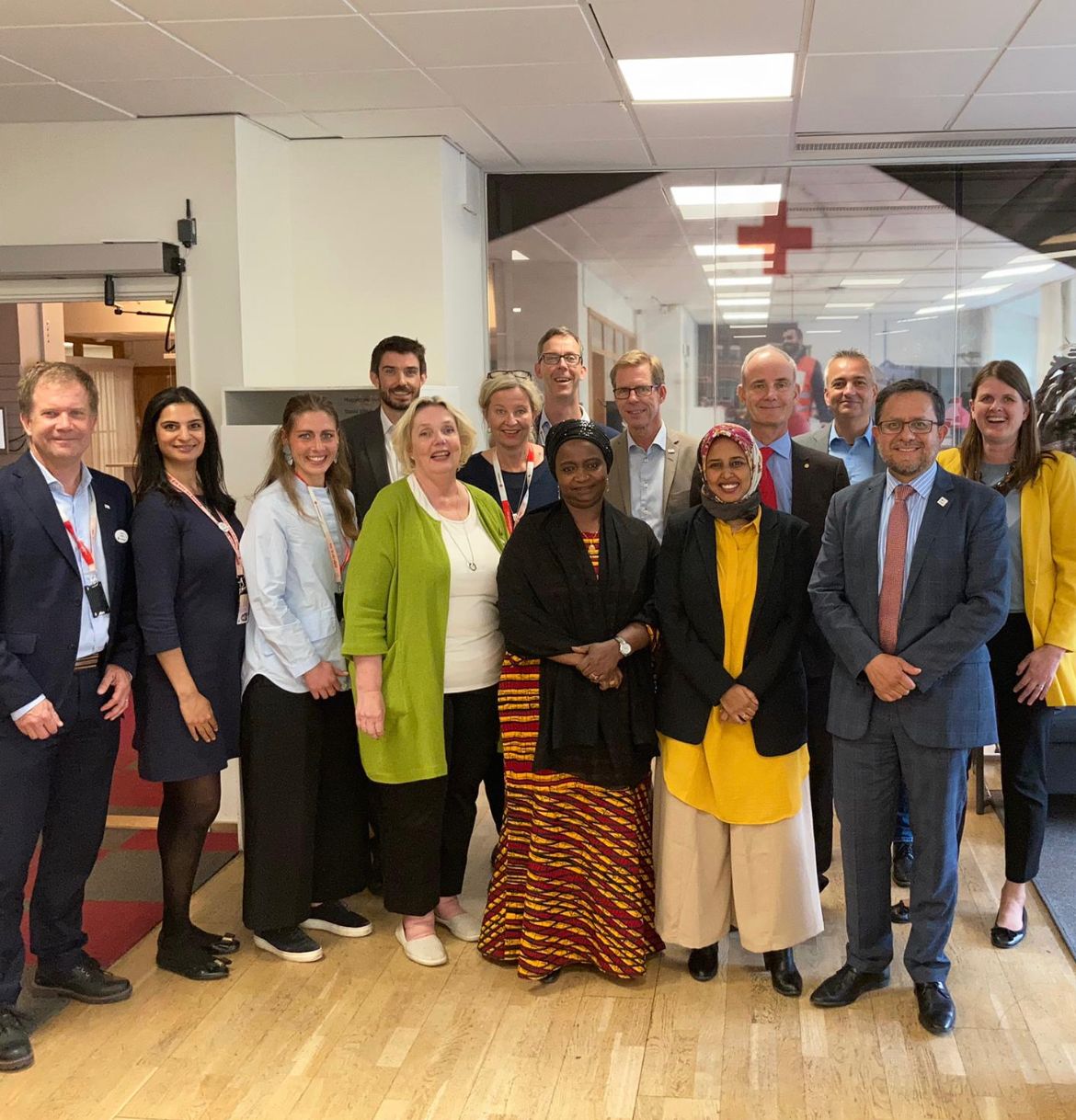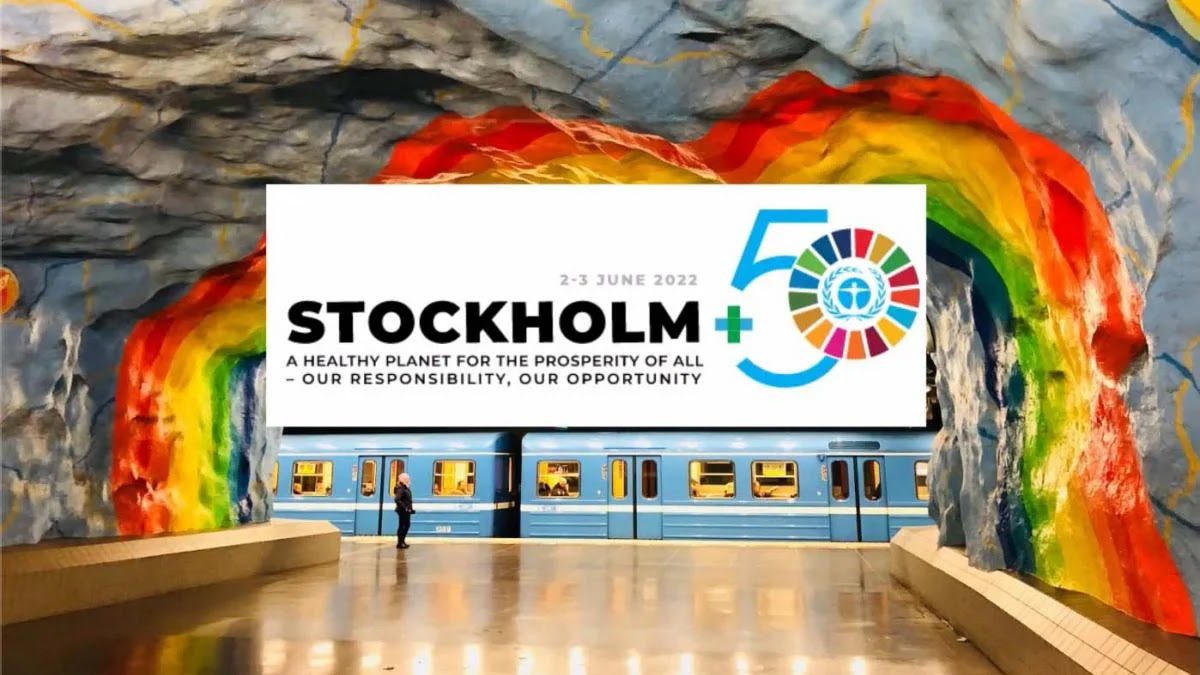By
Rading Biko
The Red Cross Movement delegations are ready to
engage in the Stockholm +50 conference that starts today and ends tomorrow.
The
delegation team headed by Xavier Castellanos USG IFRC, ICRC VP Gilles
Carbonnier , KRCS Secretary General , Dr.Asha
Mohamed and SRC Secretary General Martin
will highlight the linkage of environmental crisis and humanitarian crisis.
President Uhuru Kenyatta is among the world leaders at
the event.
This two-day meeting commemorates the 50th anniversary of
the United Nations Conference on the Human Environment in Stockholm – which
marked a new era of global cooperation.
The Red Cross Movement delegations at Stockholm +50 conference.
Today world leaders and representatives from government,
business, international organizations, civil society and youth are gathering in
Sweden for Stockholm+50 – an international meeting to drive action towards a
healthy planet for the prosperity of all.
The event comes at a crucial time as the Earth is in
emergency mode, and urgent action is needed to address the triple planetary
crisis of climate change, nature and biodiversity loss, and pollution and waste.
What is Stockholm+50?
The Stockholm+50 is co-hosted by Sweden and Kenya,
Stockholm+50 will is taking place under the theme “A healthy planet for the
prosperity of all – our responsibility, our opportunity.”
This two-day meeting commemorates the 50th anniversary of
the United Nations Conference on the Human Environment in Stockholm – which
marked a new era of global cooperation.
At the 1972 conference, 113 countries adopted the
Stockholm Declaration and Action Plan for the Human Environment, placing
environmental issues at the forefront of international concerns.
The
conference also led to the creation of the UN Environment Programme (UNEP) and
began an important dialogue between industrialized and developing countries on
the links between the environment, economic growth and human well-being.
Stockholm+50 marks a milestone in our collective journey
toward a healthy planet. It offers the opportunity to reflect on, celebrate and
build upon 50 years of environmental action.
The meeting is also organized around plenary segments,
three leadership dialogues and side events that will focus on the importance of
multilateralism in tackling the triple planetary crisis.
It seeks to reinforce the outcomes of the fifth UN
Environment Assembly, which took place earlier this year in Nairobi, Kenya.
Mrs Indira Gandhi, former Prime Minister of India,
addresses the 1972 Stockholm Conference.
What is the triple planetary crisis?
The triple planetary crisis consists of three interlinked
issues threatening human and environmental health: climate change, nature and
biodiversity loss, and pollution and waste.
The climate crisis is causing more frequent extreme
weather events such as storms and droughts, which worsen food and water
scarcity. Research shows that to stave off a climate catastrophe, the world
must halve annual greenhouse gas emissions by 2030 to reach net zero by 2050.
Human
activities have modified 77 per cent of land (excluding Antarctica) and 87 per
cent of the ocean. More than 2 billion hectares of land are degraded due to
overuse or mismanagement. and one million species face extinction.
Air pollution, the greatest environmental threat to
public health globally, accounts for an estimated 7 million premature deaths
every year. 11 million metric tons of plastic waste enter our ocean every year.
At the same time, we produce 50 million tons of e-waste.
How will Stockholm+50 address the planetary emergency?
Stockholm+50 will help accelerate the implementation of
the 2030 Agenda and the Sustainable Development Goals to achieve a healthy
planet – which is essential for social and economic progress, well-being, and
resilience.
By gathering a broad set of stakeholders from all around
the world, the meeting will emphasize the importance of a multi-actor,
multi-sector approach to addressing environmental issues and embody the
importance of collaborative action.
Stockholm+50
also highlights our inter generational responsibility to protect the Earth and
ensure that life support systems are available to all.
For 50 years, the world has come together to confront the
planet’s biggest environmental challenges, from eradicating the production of
leaded fuel to protecting more than 38,000 species and mending the hole in the
ozone layer.
This
global cooperation has restricted the international trade in mercury, banned
hazardous chemicals and reduced renewable energy prices.
But 50 years on, the need to accelerate action for the
environment, poverty alleviation and human rights is more urgent than ever.
Stockholm+50 provides a unique opportunity to be another
turning point and steer humanity back on the path to a healthy planet and the
prosperity of all.
About the Author
Rading Biko
Contributor
A highly experienced multi-platform Editor, digitally aware, skilled with words, and endowed with the ability to work effective under deadline pressure. Coming with a record of accomplishment of delivery high level of clarity, accuracy, and balance in copy editing functions. Since 2010 I have been working across the full spectrum of Kenyan Media as a Multimedia Journalist on both Electronic(Radio and Television),Print and online media.

















